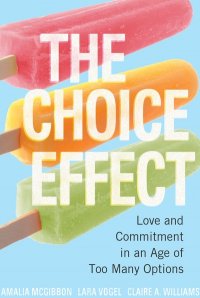It’s a Boy! We’re Calling Him Messiah.
I’ve been thinking about babies.
Yes. I know, I’m only in my mid-twenties, not exactly employed, uninsured, and still trying to figure things out. So not really in the position to have one, responsibly that is.
Nevertheless, I’d say it’s pretty normal seeing as I’ve been with “my guy” for a year now and not only is he a wonderful man and great “father-material” but quite handsome. I can’t help but think about what a child with him would be like or at the very least, LOOK LIKE?
(He is Korean/Lithuanian and I’m Irish/Portuguese, in my mind, the combo could be perfect!)
I could just do the simple thing (avoiding all the worries of childbearing and later child-caring) and hit up MorphThing.com to just digitally figure this whole thing out, but I can’t seem to get myself to actually upload our pictures. Somehow, it seems like cheating.
In my mind I’ve gone as far as to start a list of baby names… knowing that I can’t exactly go too far off the beaten track as my guy HATES unusual baby names, citing that they only lead children to feel like “outsiders”.
It’s a fair argument, I myself grew up with an unusual name, so I know he’s right on many levels.
But, it seems pretty normal today. Not only are “celebrities” giving their children unusual names, but studies show that “about 40 percent of boys received one of the 10 most common names in the 1880s, while now fewer than 10 percent do. For girls, the percentage with a top-10 name dropped from 25 percent in about 1945 to 8 percent in 2007. Similar results were seen for the top-50 names. About half of girls received one of the 50 most popular names until the mid-20th century. Now, just one in four have these names.”
All these “facts” had me thinking, no longer about my own “theoretical-dream-baby” but about what all this information means about my generation.
We’re inundated with choices, education, career, love, media, fashion, transportation, diet, etc. You name it and we’ve got it.
One might say we’ve got a little more than “too many” choices.
I understand that I am not considering the fact that I live in New York, where everything is at your fingertips from the moment you walk out the door, and in some countries, your list of choices is considerably less… but hey, I can only write about what I know.
Anyways, back to the babies and their names.
It actually surprises me that the level of our world’s population is still growing.
With all theses choices, you’d think the hardest one to make would be whether or not one should have a baby?
(And don’t forget, if you don’t know, there are plenty of choices in the “contraceptive department” till you do).
But once we get past that decision and “the bun is in the oven” we now have the next choice: The Baby Name.
The quest for a baby name can last for months, past the point of delivery even. I get why I mean you’re basically paving the path for how the world will perceive this human being, at first introduction, also, if a child is an “extension” of the parents then the baby name is somehow a reflection of “ME”.
Jean M. Twenge the author of “The Narcissism Epidemic: Living in the Age of Entitlement” (Free Press, 2009) and “Generation Me: Why Today’s Young Americans Are More Confident, Assertive, Entitled - and More Miserable Than Ever Before” says that we’re naming narcissists, but I’d like to argue with that.
In my mind, this “unusual-baby-name-epidemic” is just a SYMPTOM of our ever increasing narcissism.
“The most compelling explanation left is this idea that parents are much more focused on their children standing out,” Twenge told LiveScience. “There’s been this cultural shift toward focusing on the individual, toward standing out and being unique as opposed to fitting in with the group and following the rules.”
How does standing out and (supposedly) being unique, in the long run, help one to have healthy relationships with the rest of world?
Unless you’re able to survive and do what you want happily, completely on your own, isn’t a parent supposed to equip their child with proper tools and education, so as to help him relate with others?
(Do you really want to hear about how your child had his ass kicked in the school playground, because he’s “different?”)
If the answer is no, then why do we insist, straight off the bat, in making this more about ME and what I like/want vs IT and IT’s future in the world?
When did we stop believing that “it takes a village to raise a child” and what that actually means?

![[del.icio.us]](../wp-content/plugins/bookmarkify/delicious.png)
![[Digg]](../wp-content/plugins/bookmarkify/digg.png)
![[Facebook]](../wp-content/plugins/bookmarkify/facebook.png)
![[Google]](../wp-content/plugins/bookmarkify/google.png)
![[Reddit]](../wp-content/plugins/bookmarkify/reddit.png)
![[Technorati]](../wp-content/plugins/bookmarkify/technorati.png)
![[Twitter]](../wp-content/plugins/bookmarkify/twitter.png)
![[Email]](../wp-content/plugins/bookmarkify/email.png)


